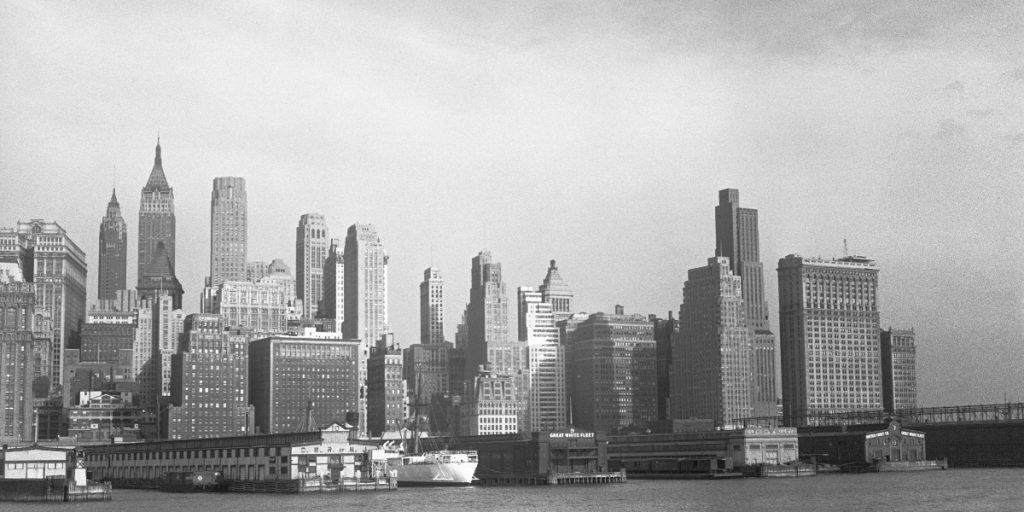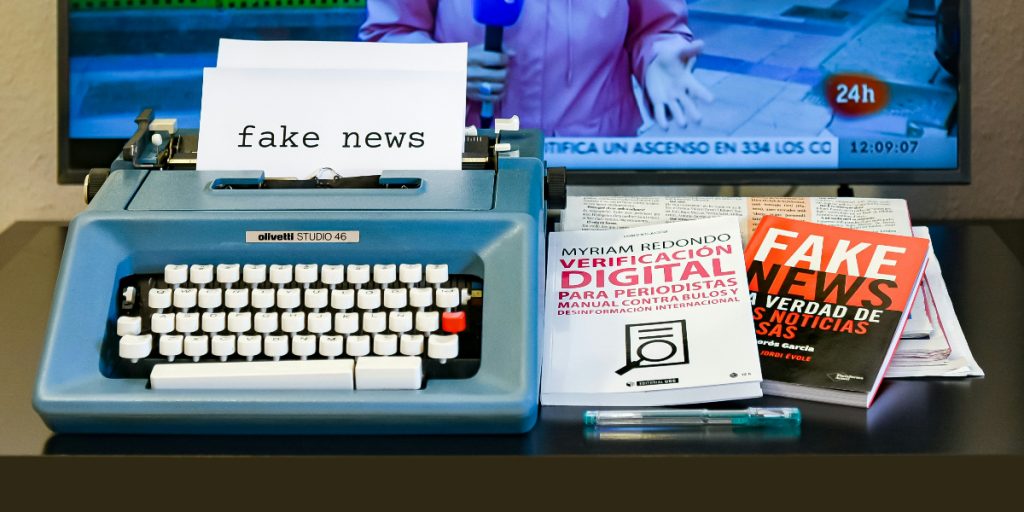Brody Mullins is an investigative reporter in the Washington, DC, bureau of The Wall Street Journal, where he covers business, lobbying, and campaign finance. He was part of the team that won the 2023 Pulitzer Prize for Investigative Reporting for revealing financial conflicts of interest among officials at 50 federal agencies who bought and sold stocks of companies they were tasked with regulating.
Luke Mullins is a contributing writer at Politico and has been a senior writer at Washingtonian magazine. He has also written for The Atlantic, Esquire, and Mother Jones, among other publications.
Below, co-authors Brody and Luke share five key insights from their new book, The Wolves of K Street: The Secret History of How Big Money Took Over Big Government. Listen to the audio version—read by Brody—in the Next Big Idea App.

1. U.S. corporations have tremendous power in our society and economy, but this wasn’t always the case.
From the 1930s to the mid-1970s, corporations had very little power in Washington and government. During that time, labor unions, public interest groups, and environmental organizations had tremendous power. They used that power to pass dozens of laws, creating new rules and regulations for society and the business. They passed laws creating the National Highway Safety Administration, the Environmental Protection Agency, and the Civil Rights Act.
For many years, companies accepted—and even supported—some of these new regulations, but in the 1970s, corporate executives began to feel that they were getting over-regulated by the government and began to fight back.
Companies from American Airlines to Wall Street firms began to spend tons of money in Washington on lobbyists and campaign donations in an effort to get more power over lawmakers. They pushed not only to block legislation that would help consumers but to enact bills that would help companies by, say, lowering their taxes or cutting back on regulations to create free trade bills with other countries.
From the 1970s to the present, companies spent so much money in Washington that they ended up in near total control of the government. They had made friends and allies with both Democrats and Republicans and could pretty much pass—or block—any bill they wanted.
2. Washington is full of lobbyist for corporations who are incredibly colorful—and controversial.
The first lobbyist was the cigar-chomping son of a powerful Washington insider. His name was Tommy Boggs, and he was the ultimate power broker. He was so connected to Washington and the government that not just his father—but later his mother—was elected to Congress.
Tommy’s father, Hale Boggs, was the Second most powerful Democrat in the House of Representatives. He was in line to become the speaker of the house when he departed on a fundraising trip to Alaska in 1972, but his plane disappeared in a storm, and he and the plane were never located. Tommy’s wife was elected to replace Hale Boggs in Congress.
Tommy was the ultimate insider. He knew nearly every member of Congress on a first-name basis and used to work on Capitol Hill, where one of his jobs was to carry around a glass of scotch to Lyndon Baines Johnson when he was a senator. The relationships that Boggs built in Congress helped him become the most successful lobbyist of his era. He was friends with everyone he needed to get things passed for his clients.
“The first lobbyist was the cigar-chomping son of a powerful Washington insider.”
In the 1980s, Republicans won control of Congress, and a new wave of Republican lobbyists swept into Washington. Among the most prominent was a guy named Paul Manafort. Manafort would later get swept up in a scandal during the Donald Trump era and go to jail. But back in the 1980s, he formed part of a small group of Republicans who were hired by companies who wanted someone close to those running Congress and in Ronald Reagan’s White House.
Manafort represented the titans of industry in the 1980s, like Rupert Murdoch and even Donald Trump himself. Manafort became rich and powerful; he bought expensive mansions and townhomes and spent tens of thousands of dollars on clothes. But later in his life, he went too far and ended up in jail.
There was also a lobbyist named Tony Podesta. Podesta was an art-obsessed lobbyist who built one of the top Democratic law firms before collapsing in his own financial scandal that was sparked, in part, by his ego and his addiction to expensive works of art.
3. The lobbying industry is not what you think it is.
For many years, top lobbyists like Tommy Boggs scored wins for major corporations by cutting deals with powerful members of Congress in smoke-filled rooms. The cozy relationships between lobbyists and lawmakers were greased with fancy steak dinners, rounds of golf, and big campaign checks.
But Washington doesn’t work that way anymore. In part, because the media is constantly on the lookout for sweetheart deals between lawmakers and corporate lobbyists, the influence business has changed. Much, but not all, of lobbying today is now focused far outside of Washington.
“The cozy relationships between lobbyists and lawmakers were greased with fancy steak dinners, rounds of golf, and big campaign checks.”
Because lawmakers are constantly running for reelection, they are very sensitive to voters’ opinions on issues. To get reelected, lawmakers know they need to do things that a majority of their constituents want them to do. Lobbyists for corporations have figured that out. So sometimes, instead of lobbying a lawmaker directly, lobbyists run public relations campaigns in a lawmaker’s home district to try to persuade a majority of voters to support what the company wants.
For example, a few years ago, big retail companies like Walmart and Best Buy wanted to pass legislation to cap the transaction fees that credit cards could charge on purchases. These fees essentially made buying things in stores more expensive for customers. So, they wanted to pass a law to cap these fees. It should be no surprise that the companies that made money from those fees—credit card companies like Visa and Mastercard—opposed cap on their fees.
When lobbyists for retail stores couldn’t get a majority of lawmakers to enact their bill, they moved their lobbying efforts out to the states. They ran ads on TV telling constituents that the things they were buying at stores were artificially expensive. Voters found that appalling and wrote letters and sent emails to their members of Congress telling them to support the new bill. That is just one example of how lobbying today has moved from an insider game in Washington to an outside game focused on voters like you.
4. Companies often use reporters and the media as part of their lobbying efforts.
Washington reporters can often play important, if unknowing, roles in campaigns by corporate lobbyists to get Congress and federal agencies to enact policies that benefit corporate America.
Smart corporate lobbyists know that members of Congress and their aides are suspicious of pitches they get from lobbyists. But government officials can be influenced by what they read in the Washington media. That means that the reporters who cover Congress and government agencies for publications like the Washington Post, Politico, and Roll Call can impact the support of or opposition to various pieces of legislation by what they write.
If a reporter for Politico writes a story saying that momentum is growing for a plan to enhance fuel efficiency standards, for example, that can become a self-fulfilling prophecy, as more members of Congress are likely to lend their support for the bill. In contrast, a news story saying that a pro-industry bill is about to go down in flames may cause a lawmaker to ditch his or her support for the measure to avoid being associated with a public failure.
As a result, there is a small niche of corporate lobbyists who spend their days trying to influence what reporters write on behalf of well-paying corporate clients. These media consultants try to build friendly relations with influential reporters by taking them to dinner, paying for their drinks, or bringing them to baseball games.
Since journalists are not public officials, they are not subject to government ethics rules prohibiting them from receiving gifts, meals, and other favors. Once a lobbyist has created a trusted relationship with a reporter, the lobbyist tries to persuade the reporter to include information in their stories that benefit their corporate clients or to abandon a story that doesn’t advance the cause of a company.
“There is a small niche of corporate lobbyists who spend their days trying to influence what reporters write on behalf of well-paying corporate clients.”
One of the earliest adopters of this type of media lobbying is an operative named Jim Courtovich. For about a decade, Courtovich threw lavish parties for his friends in the media, government, and corporate offices. He even dated a well-known Washington reporter, a move that made many reporters feel more comfortable attending his parties.
After befriending reporters at the New York Times, Wall Street Journal, and elsewhere, he signed up a roster of corporate clients and foreign governments that wanted to influence what those reporters wrote. One of his clients, Goldman Sachs, paid him $50,000 a month for his services. The government of Ethiopia later paid him $1.6 million for one year’s work.
5. The Wolves of K Street was inspired when police found a dead body just off the 18th green at an exclusive golf resort outside of Washington.
On a warm summer evening in July 2015, the staff at the exclusive Robert Trent Jones golf club outside of Washington were busy preparing the course for a professional golfing event sponsored by Tiger Woods. Robert Trent Jones is one of the premier golf courses in Washington, D.C. It costs $150,000 to join, and its membership is limited to just a few hundred people so that members would never have to wait in line to tee off.
Members include some of Washington’s top corporate lobbyists, politicians, and dignitaries. On that day—July 8, 2015—the sun was about to set when one of the club’s staffers patrolling the course heard what sounded like a gunshot. At first, he thought it came from some hunters from across a nearby lake. A few moments later, another shot rang out.
A few hours later, a server from the club’s restaurant went down to a fire pit near the 18th hole to check on a patron. The patron had played a round of golf by himself earlier in the day before ordering a $1,500 bottle of wine and retiring to a white Adirondack chair by the fire pit. The server had briefly chatted with the man and nothing seemed amiss.
But when the staffer went to check on the man around sundown, he found that the man was slumped in his chair. The man wore a black sports jacket, a white dress shirt, gray slacks, and black loafers. On the left arm of the chair was a burnt cigar. On the grass next to him was his empty bottle of wine. Then, the server noticed bloodstains on the man’s shirt, a gunshot wound in his head, and a silver Smith & Wesson .357 pistol. Unraveling what happened to the man that day was more than a mystery for local law enforcement.
It turned out that the dead man’s story—and how he wound up with a bullet in his skull just off the 18th green at one of Washington’s most prestigious golf courses—helps explain how the city’s corporate lobbying industry has evolved from a sleepy industry based on relationship and insider deals to a sophisticated and lucrative influence ecosystem where billions of dollars flow freely with little accountability or oversight from the government public and even the companies themselves.
To listen to the audio version read by co-author Brody Mullins, download the Next Big Idea App today:
































